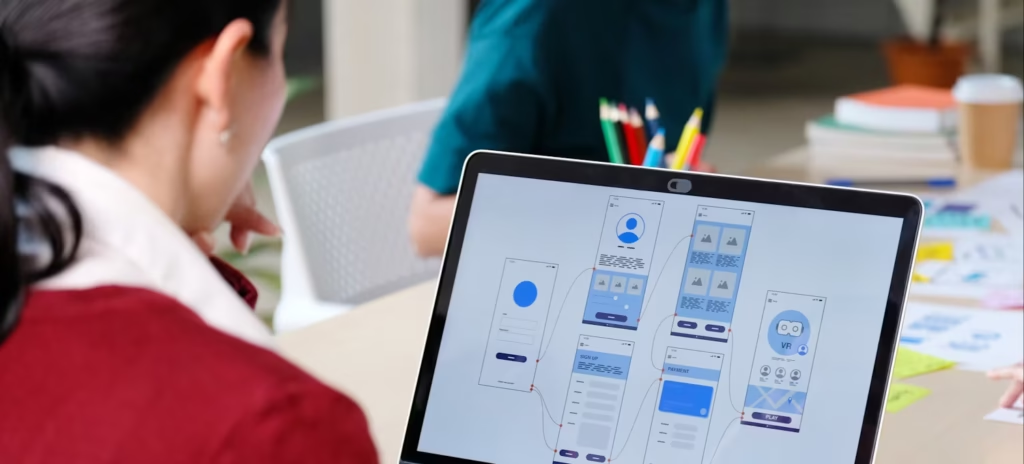Software testing is one of the most accessible ways to break into the tech industry — and a junior QA tester training program can give you the confidence, skills, and direction to start strong, even without any prior experience.
Whether you’re pivoting from a non-technical job, just graduated from school, or looking to re-enter the workforce after a break, quality assurance (QA) offers a solid entry point. With a structured training program, mentorship, and real tools, your path to a tech career doesn’t have to be confusing or overwhelming.
Let’s explore how a junior QA tester training program can change your trajectory and set you up for success.
Why Junior QA Testing Is the Perfect Entry Point Into Tech
Tech careers often feel out of reach for people without programming skills or degrees in computer science. That’s where QA testing stands out. As a junior QA tester, you focus on ensuring software works as expected. You spot bugs, report issues, and help make digital products better — all without having to write a single line of code.
What makes this role especially attractive is the growing demand for reliable, well-trained software testers. Companies across industries need QA professionals to maintain quality in apps, websites, and systems. That’s why a junior QA tester training program can open doors faster than you might expect.
What Is a Junior QA Tester? Understanding the Role
A junior QA tester is an entry-level professional who supports software development teams by checking applications for bugs, usability issues, and functional errors. You’ll typically work under a senior QA engineer, writing test cases, running manual tests, and documenting results.
Daily tasks might include:
- Creating test plans and test cases based on software requirements
- Manually testing apps across devices and browsers
- Reporting bugs using tools like Jira or Trello
- Collaborating with developers to resolve defects
- Participating in Agile team meetings
You won’t need to know how to code (though it can help in the future). Instead, you’ll learn to think critically, communicate clearly, and pay close attention to detail — all skills a junior QA tester training program will help you develop.
What You’ll Learn in a Junior QA Tester Training Program
A solid training program covers everything you need to feel confident in your first QA role. These are some of the core topics you’ll typically explore:
- Test Case Design – How to write effective test cases that cover different user flows and edge cases.
- Test Execution – How to manually test software and document outcomes clearly.
- Bug Tracking – How to use bug tracking tools to log and report issues professionally.
- Agile QA Practices – Understanding your role within Agile and Scrum teams.
- Collaboration and Communication – How to report findings and collaborate with developers.
A junior QA tester training program should combine theory with practical exercises. The best ones will also simulate real-world projects so you gain confidence using tools like Jira, Postman, and browser developer tools.
Who Should Join a Junior QA Tester Training Program?
QA testing is for anyone willing to learn. Some of the most common student backgrounds include:
- Career changers looking to move into tech from industries like customer service, education, or admin
- Recent graduates without formal job experience who want to build practical skills fast
- Stay-at-home parents or individuals re-entering the workforce after a break
- People interested in tech but unsure where to begin or how to code
No matter your background, a junior QA tester training program can be your launchpad into a future-proof and rewarding career.
How a Mentor-Led Program Accelerates Your QA Career
There’s a big difference between learning on your own and having someone guide you through the process. Mentor-led QA training provides structure, support, and feedback that self-study just can’t match.
Here’s what mentorship adds:
- Faster learning – Skip common mistakes and confusion
- Real-world insight – Learn how QA works in actual companies
- Feedback loops – Improve faster with comments on your work
- Motivation and accountability – Stay on track with someone in your corner
A quality junior QA tester training program that includes mentorship ensures you’re not just learning passively — you’re actively becoming job-ready.
Coachuity’s Approach to Junior QA Tester Training
Coachuity delivers a hands-on, no-fluff junior QA tester training program designed to help you break into tech quickly. Rather than rely on long lectures or theory-heavy sessions, the program focuses on action and implementation.
Here’s what makes Coachuity stand out:
- Mentor-led training from experienced QA professionals
- Real project exposure using industry-standard tools
- Step-by-step structure with a clear roadmap to employment
- Supportive community of learners and mentors
Coachuity believes that ambition should lead to execution. Their mission is to help you go from zero to job-ready, using the same tools and workflows real QA teams use.
From Training to Job-Ready: What Comes After the Program
Completing a junior QA tester training program is just the start. With your new skills and mentor support, your next steps will likely include:
- Building a beginner portfolio – Include your test cases, bug reports, and QA documentation
- Applying for junior roles – Target entry-level QA positions, internships, or apprenticeships
- Preparing for interviews – Practice common QA interview questions and scenario-based tasks
- Exploring further learning – Consider automation testing later, once you’re grounded in manual testing
Most junior QA testers start with a salary that grows steadily with experience. And as you gain more exposure to tools and techniques, you can specialize in areas like test automation, performance testing, or QA leadership.
How to Choose the Right Junior QA Tester Training Program
Not all programs are created equal. To make sure you get the most out of your investment, look for these key features:
- Practical, hands-on learning (not just theory)
- Mentorship or coaching from industry professionals
- Access to real-world tools and environments
- Portfolio development and job support
- Positive reviews or success stories from past students
Avoid programs that promise overnight results or charge high fees without offering real support. A good junior QA tester training program will be transparent, supportive, and focused on outcomes.
Start Your QA Journey with Confidence
A junior QA tester training program is one of the smartest and most realistic ways to begin your journey into tech. It gives you the tools, experience, and mindset needed to launch a career in software testing — even if you’ve never written a line of code.
The combination of hands-on learning, real mentorship, and focused job readiness makes all the difference. Whether you’re switching careers, starting fresh, or rebuilding your professional path, quality assurance can be your stepping stone to a better future.
Takeaway
Starting a tech career doesn’t have to be complicated or require years of study. A well-designed junior QA tester training program gives you everything you need to confidently step into the world of software testing — even without a technical background.
With hands-on practice, mentor support, and job-focused training, you’ll gain the skills to test real applications, identify bugs, and contribute to development teams from day one. Whether you’re exploring new opportunities, changing careers, or simply curious about QA, now is the time to invest in a program that turns your potential into progress.















